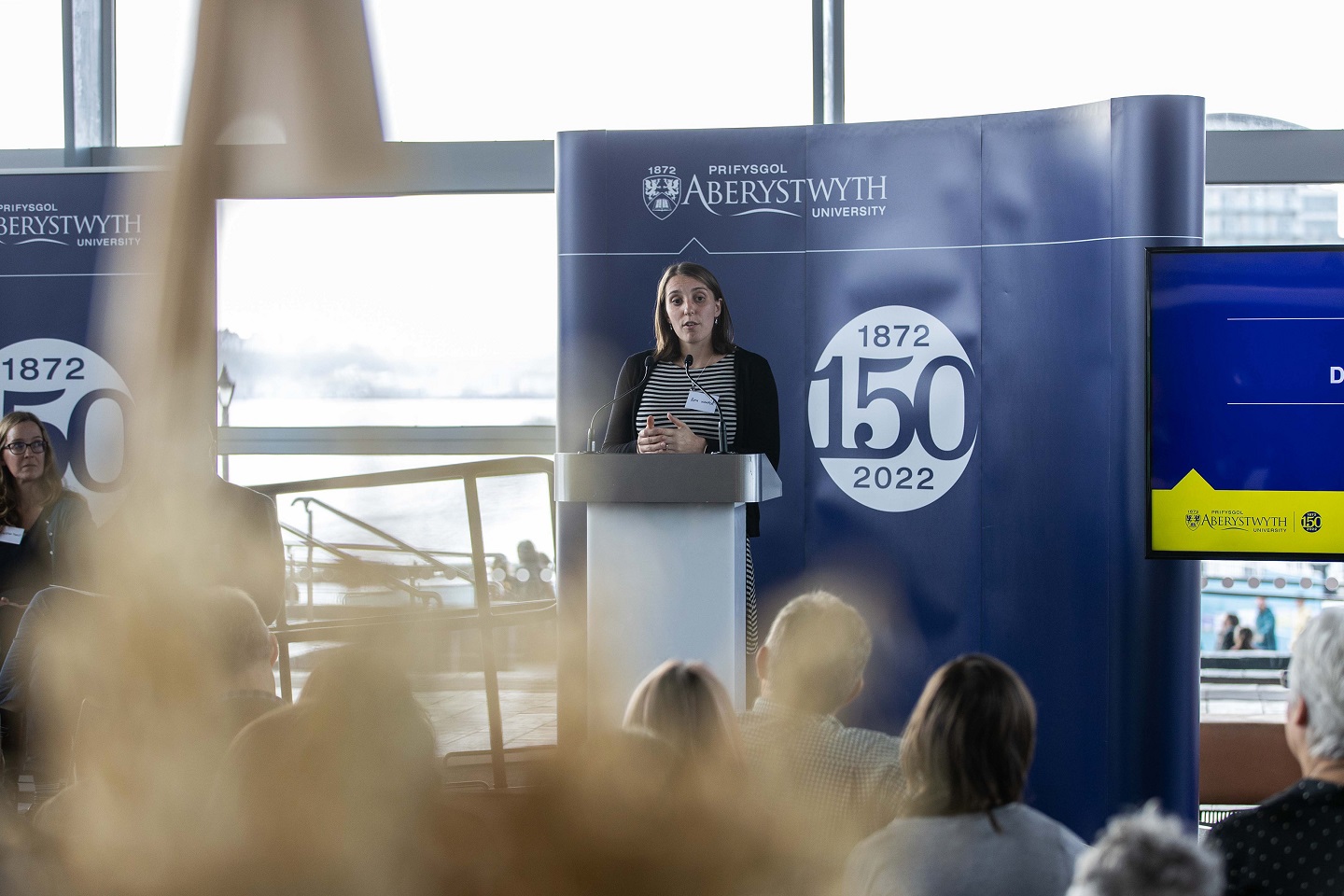Research grant to help produce new sustainable foods

Dr Ruth Wonfor
15 May 2023
Scientists at Aberystwyth University are contributing to a multi-million-pound research project to produce sustainable alternative proteins to help feed the world’s growing population.
Dr Ruth Wonfor is looking at the most effective methods of using livestock cells to grow cultured meat sustainably, efficiently and ethically.
Her work will focus on the best cells to use and the nutrient formulations in which they are grown under laboratory conditions.
Dr Wonfor’s research is part of a £12m project to set up a Cellular Agriculture Manufacturing Hub, funded by the Engineering and Physical Sciences Research Council (EPSRC) and led by the University of Bath.
Dr Wonfor from Aberystwyth University’s Department of Life Sciences said: “The sustainability of food production and supply chains is a major challenge both here in the UK and globally.
“Our work at Aberystwyth is focused on identifying the best source of muscle cells and nutrients for bioreactors that produce cultured meat sustainably, efficiently and ethically so that we have the means of producing additional sources of protein alongside traditional farming methods, without having to greatly increase animal numbers. I look forward to working with colleagues at Bath and other institutions as we tackle the pressing problem of sustainably feeding a growing global population.”
Professor Marianne Ellis from the Department of Chemical Engineering at University of Bath, said: “I am incredibly excited and thankful that the EPSRC have recognised the opportunities the emerging field of cellular agriculture brings to achieving net zero and addressing food security.
“We will take a transdisciplinary approach by engaging with consumers and other stakeholders from the outset to ensure we compliment and boost our country’s food and farming industry for sustainability, social, and economic gains.”
UK Minister of State for Science, Research & Innovation George Freeman said: “With 9 billion mouths to feed by 2050 we need to double world food production on the same land area, using half as much energy and water. We cannot achieve that through traditional agriculture. The Cellular Agriculture Manufacturing Hub will spearhead the development of new processes to produce key food groups like proteins sustainably and cost effectively to feed a growing global population.”
The seven-year, multidisciplinary project also includes scientists from the University of Birmingham, University College London, and the Royal Agricultural University, with an array of expertise spanning the underpinning sciences, engineering, and social sciences as well as a range of industrial partners.



